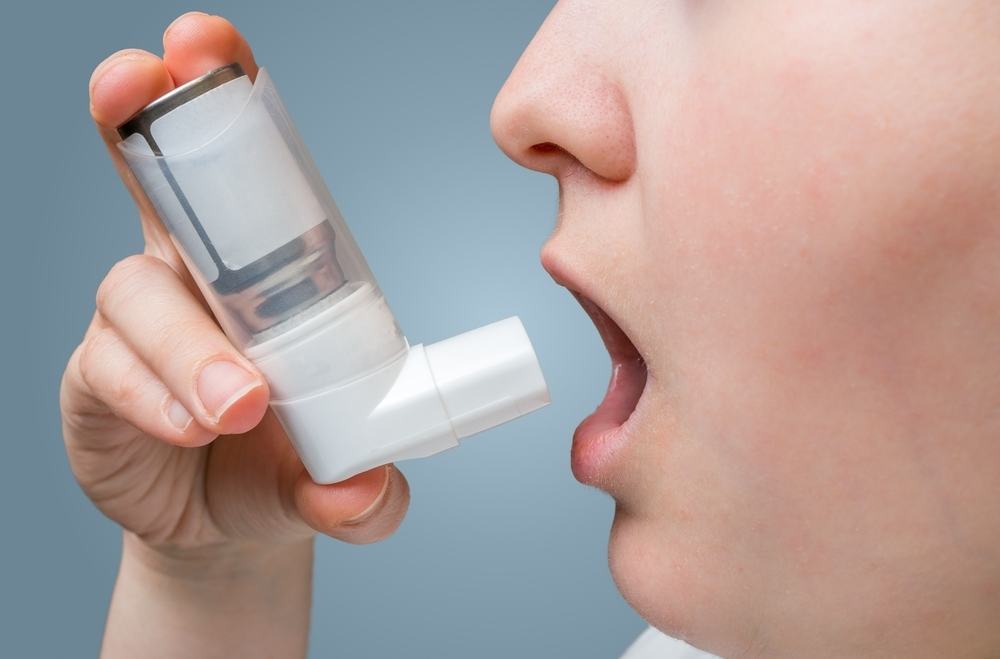Contents:
- Medical Video: Could Acid Reflux be Linked to Asthma?
- Symptoms of gastric acid reflux
- Treatment
- Lifestyle changes
- Control stomach acid in children
Medical Video: Could Acid Reflux be Linked to Asthma?
Asthma sufferers are almost twice as susceptible to being affected Gastroesophageal Reflux Disease (GERD) aka stomach acid disease than those who are not asthmatic. In fact, research has shown that more than 75 percent of adults who suffer from asthma also have stomach acid disease.
Although the relationship between the two conditions is not entirely clear, researchers believe that stomach acid that accumulates into the esophagus damages the lining of the throat and respiratory tract to the lungs over time. This can cause difficulty breathing and persistent coughing.
Acid can trigger nerve reflexes, which cause narrowing of the airways and prevent acids from entering the throat. This can also cause asthma symptoms. Whatever the reason, according to the Mayo Clinic, one thing is known for sure: stomach acid can make asthma symptoms worsen and asthma can worsen the symptoms of gastric acid reflux.
Symptoms of gastric acid reflux
The dominant symptom of gastric acid reflux in adults is frequent heartburn. However, in some adults and most children, stomach acid will occur in the absence of heartburn. Conversely, symptoms can appear in the form of asthma symptoms such as dry cough or chronic difficulty swallowing. Some hints that your asthma is related to stomach acid including:
- asthma symptoms that begin in adulthood
- asthma symptoms that worsen after a big meal or exercise
- asthma symptoms that occur when drinking alcoholic beverages
- asthma symptoms that occur at night or when lying down
- asthma medication is less effective than usual
It is difficult to identify symptoms of gastric acid in children, especially if they are still very young. Infants less than one year old will often experience symptoms of acid reflux - such as frequent spitting or vomiting - in the absence of disease. However, in older toddlers and children, GERD can appear with symptoms:
- nausea
- heartburn
- repeat regurgitation
- asthma symptoms, such as coughing, sore throat, and wheezing
Babies and children can:
- become irritable
- humpback
- refuse to eat
- bad growth
Treatment
Until now, it was believed that controlling acid reflux with proton pump inhibitors (PPIs) such as Nexium and Prilosec would help alleviate asthma symptoms too. However, a study in 2009 was published in New England Journal of Medicine question the effectiveness of the drug in treating severe asthma attacks. During the nearly six-month study, there was no difference in the level of severe attacks between people who took the drug and those who took it placebo. "This is unexpected," said Nicola Hanania, a research collaborator from Baylor College of Medicine in Houston, Texas.
Prior to this study, researchers estimated that between 15 and 65 percent of asthma patients used heartburn to control severe asthma attacks. Certain asthma medications include theophylline (Theo-34 and Elixophyllin, among others) and beta-adrenergic bronchodilator-can aggravate acid reflux. Consult your doctor before changing or decide not to use your asthma medication.
Lifestyle changes
Because of the ineffectiveness of certain drugs when treating acid reflux and asthma together, the best treatment might be to control symptoms of stomach acid with lifestyle changes, such as:
- excessive weight loss
- quit smoking
- avoid foods that contribute to acid reflux, including alcoholic or caffeinated beverages, chocolate, citrus fruits, fried and fatty foods, garlic, mint like peppermint and spearmint, onions, spicy foods, and tomato-based foods such as pizza, salsa, and spaghetti sauce
- eat small meals more often
- eat food at least three to four hours before going to bed
- avoid snacks before bed
- avoid as many asthma triggers as possible
Other steps that can help to control stomach acid include:
- lift the head to the bed six to eight inches by placing blocks under the bedpost (extra pillows are not effective)
- wearing loose clothes and a belt
- use antacids
When other strategies and treatments don't work, surgery is usually the last choice that is effective in treating stomach acid.
Control stomach acid in children
Some easy strategies to avoid increasing stomach acid in children include:
- make the baby burp several times during breastfeeding
- keep the baby in an upright position for 30 minutes after breastfeeding
- feed children in small but frequent portions
- do not give children the food mentioned above.












